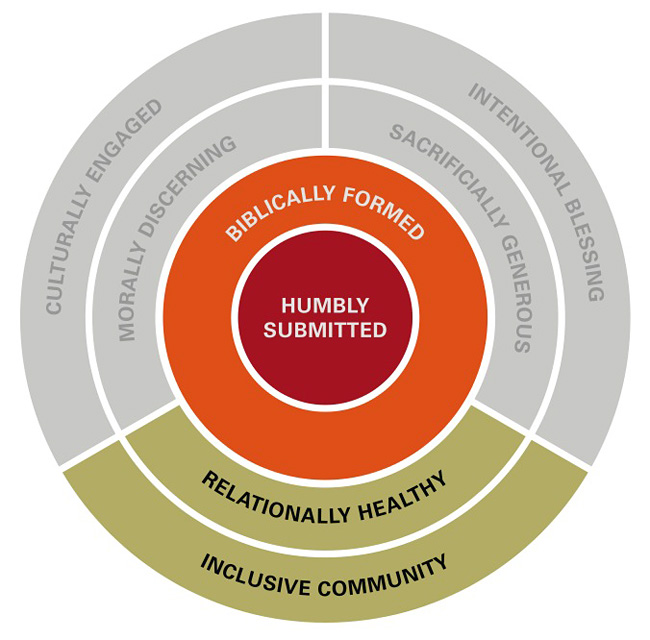This article was imported from our previous website, which many have broken some of the content. We apologize in advance for any strange formatting or broken links you may find.

This blog post is part of the series from the Spiritual Formation team walking through The Anatomy of a Disciple. This post will give you a brief snapshot of what it means to be about Inclusive Community.
I drive down the street see the Unitarian Church parking lot full on a Sunday morning. I catch a movie at the local theatre and watch the endless droves of people walking around with tattoos on their arms, multiple earrings hanging their faces, and pants hanging around their ankles. I spend time with my college friends and have to endure their godless conversations about their weekend escapades. Deep down, I know that I’ve been changed, that I’m a new creation in Christ (2 Corinthians 5:17). I know that God has called me to live differently (Matthew 5:16). But as I looked into the world I’m appalled by wickedness I see. I tune into the Top 10 on the radio and its blatant perversion shocks me. I read about the latest movie release glorifying sex and violence and it angers me. And my response is to retreat and condemn. I heard the pastor say that we are suppose to be in the world (John 17:14-16) but not of it but frankly I don’t think he knows what’s in the world. And if he did he certainly wouldn’t spend any time there.
Sound familiar? As Christians, we are quick to complain about the world. We love to point out the sins of governments, corporations, and the entertainment business. We mourn the fact that the world is going to hell in a hand basket and there’s nothing we can do to stop it. We’re like the backseat driver who offers suggestions and criticism while out of reach from the steering wheel. Or the armchair quarterbacks who is certain that they are more qualified to make decisions than the professional coaches who do this for a living. If we’re truly honest with ourselves, we know that too often we shout loudly about the current state of affairs of the world. And our announcements are ones of judgment and condemnation.
Christians tend to be exclusive. Exclusive means to be selective, limited, closed off. We see the evil around us and we shut ourselves off from it. We create barriers and boundaries that protect us from the patterns of this world and hang out in our Christian Camelot’s - churches and small groups where everything is safe and comfortable. We’re afraid to be around those will taint us. We make a distinction between the holy and unholy, who God loves and who God hates. And in doing so we disengage and distance ourselves from the world and others. We’ve created a win-lose, right-wrong, heaven-hell approach to the message of Christ and we communicate that message to the world by how we live.
But we need to move outside our sheltered Christian community. We need to reject Christian Camelot's where we run and hide and play nice with one another. We must remember the Incarnation, that Jesus became man and moved into the neighborhood (John 1:14). So we must be intentional about living lives of INCLUSIVE COMMUNITY.
The goal is to make disciples – to help people become more like Jesus in word, deed, and thought. It is the sharing our faith as we live out our faith around others, especially non-believers (I Thessalonians2:8). Our lives lead to opportunities to bring the Good News. Jesus is our model. Jesus was the first inclusive person his country had ever seen. Radical. He spent his time with outcasts and sinners, the ones that the religious leaders of his day were appalled by. He broke down social, racial, religious, and social barriers. He was a magnet. He was salt and light (Matthew 5:13,14) and he calls us, his followers to bring flavor and illumination to the world around us.
So we are also are to go into the world and share the life-giving, life-saving, life-changing love of Christ to our neighbors, co-workers, and those God brings across our paths. That’s how you make disciples, not by withdrawing but by entering in. Not be condemning but by loving. When we live this way we bring the Good News to the places where people live, work and play.
